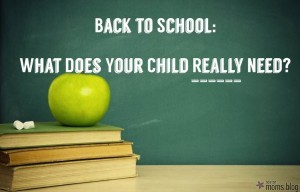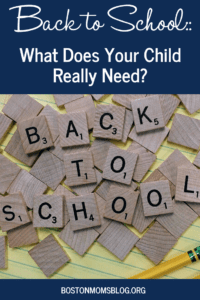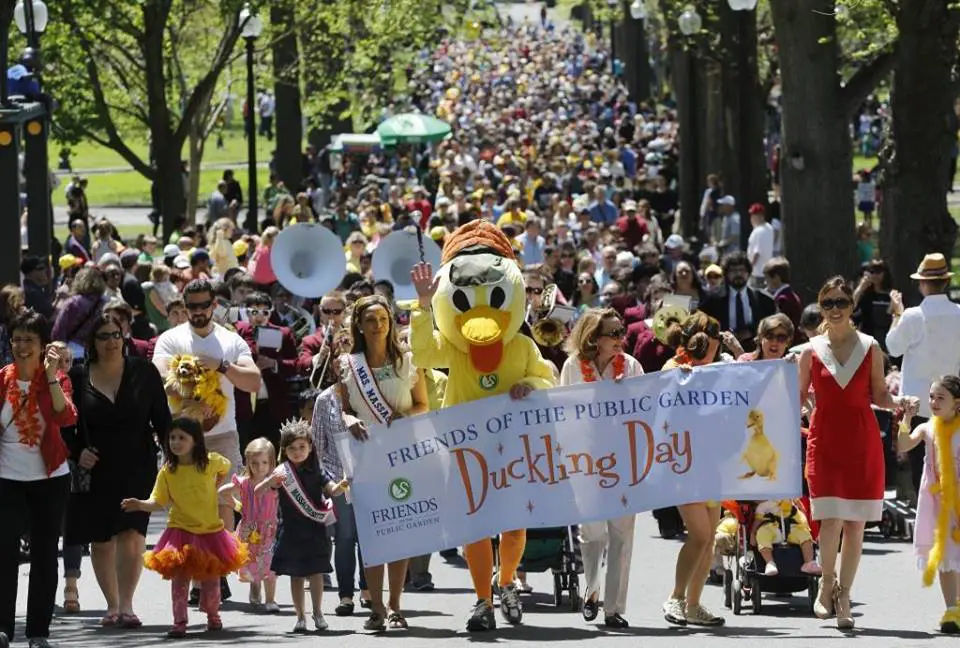
It’s that time of year again. We’ve had our first rainy 70-degree day, back-to-school ads are everywhere, and schools are starting to send out emails and letters. As a mom, I’m starting to think about everything I have to buy… the long pants, long sleeves, and new lunch boxes, backpacks, etc. As a teacher, I worry less that the kids have the perfect school supplies and more about whether they have the right emotional tools. How can you help your own children start this school year with their backpacks full of supplies and their hearts and minds prepared?
Share your own mixed feelings
It’s a given that children won’t want the summer to end, even if they’ve always loved school. Truth be told, most parents don’t want the summer to end either, even if we’re working full time through it. September feels like the start of real life again. Boston traffic becomes terrible, Bostonians are not as nice to each other, and we all start dreading those snow dams from last year. Despite all of this, your child needs you to model how to handle all these conflicting emotions with hope and excitement about the experiences to come.
Kids are programmed to think in black and white. Things are good or they are bad. Summer equals good, therefore the start of school must equal bad. We need to model feeling two ways at the same time. They can be sad that camp is ending and also enthusiastic about a trip to the beach at the same time. They can be upset about leaving a playdate and also excited about seeing their siblings. They can be angry about putting away their toys and also eager to go to the park. Talk to your child about experiences in your own life, now and from your childhood, when you held two feelings at the same time. It’s OK for them to be excited about school and nervous at the same time. They, like you, are probably sad that the summer is ending and also hopeful about a great school year ahead. Feeling two emotions at the same time — and not feeling like they have to choose between them — is hard for kids and something they need lots of practice with. The beginning of the school year is an ideal time to do so.
Validate first-day jitters
Nobody wants their kid to feel scared going into a new situation, so it’s easy to say things like, “It’ll be fine,” “It’s no big deal,” or “Don’t be nervous.” Instead, see if you can recall experiences where you were nervous the first day/time but ended up loving it. Tell your child those stories. Remind your child of times they were scared to do something new but were able to work through those fears.
Talk about how your own body feels when you are both nervous and excited… does your heart race, your face feel hot, your stomach hurt, etc.? Children are relieved that these feelings aren’t happening to just them, and it might even prevent one of the oh-so-common trips to the nurse that first week if they know what physical feelings to expect.
Read books about the first day of school
For many children, it helps to use books to explore what they might feel like when school begins. Teachers will most likely read some of these the first week of school, but you can give your child a head start by beginning to talk and read about it now.
There are hundreds of “back to school” or “first day of school” booklists. If you Google one of those two phrases or look them up on Pinterest, the lists are endless. Two that I like, as both a mom and a teacher, are GoodReads (extensive but more geared to K-2) and ReadWriteThink (by grade level).
Show your child your excitement about the teacher
This is advanced parenting, because it’s hard. Even if this teacher has a bad reputation among your friends, even if this teacher had your older child and wasn’t great, even if you were hoping for anyone but that teacher, the fact is that your child has that teacher and will for the rest of the year. You set the tone for the attitude your child brings with him/her the first day and for the rest of the year. You can drink wine and make fun of the teacher with your spouse as much as you want after the kids go to bed, but please don’t make negative comments about the teacher in front of your kids. Don’t have “quiet” conversations at drop off or at the park with other parents while the children are playing nearby. They are listening, even when you’d swear they can’t hear you (try whispering “ice cream”). Everything you say about the teacher affects how your child interacts with that teacher. If you show disrespect, so will they. That doesn’t mean you can’t address problems as they come up or talk to the teacher about your concerns or validate your child’s feelings. Just try really really hard not to project your own opinions about the teacher onto your child.
Good luck to all your children. May their transitions be smooth, their peers kind, and their teachers magical.
What have your back-to-school experiences been? What helps your child get through that nervous excitement? What books have you read that you’d add to this list?














